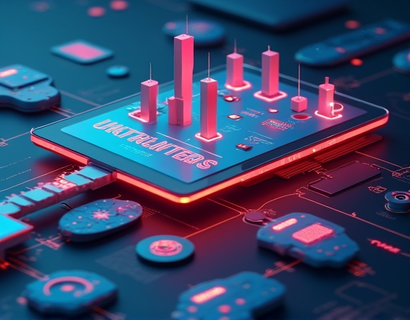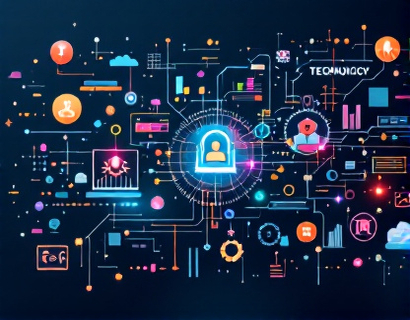Streamlining the Launch of Decentralized Autonomous Organizations with Advanced Tools and Resources
The advent of blockchain technology and decentralized systems has opened new avenues for business creation and management. Decentralized Autonomous Organizations (DAOs) represent a novel approach to organizing and operating businesses, leveraging the power of smart contracts and community governance. However, the process of launching a DAO can be complex and daunting, involving numerous technical and legal considerations. This article explores how advanced platforms and tools are revolutionizing the creation of DAOs, making it easier for tech innovators and entrepreneurs to establish autonomous ventures that can thrive in the decentralized landscape.
Understanding DAOs and Autonomous Ventures
Before delving into the tools and resources available for launching DAOs, it's essential to understand what DAOs and autonomous ventures entail. A DAO is a organization governed by rules encoded in smart contracts on a blockchain. These smart contracts automatically execute, manage, and enforce the organization's rules and decisions, eliminating the need for a central authority. This decentralized structure promotes transparency, accountability, and community involvement.
Autonomous ventures, often synonymous with DAOs, are businesses that operate with a high degree of autonomy, relying on decentralized systems for decision-making and execution. These ventures can range from decentralized finance (DeFi) platforms to decentralized marketplaces and community-driven projects. The key advantage of autonomous ventures is their ability to function without traditional hierarchical structures, enabling more agile and responsive business models.
Challenges in Launching DAOs
Despite the potential benefits, launching a DAO is not without challenges. One of the primary hurdles is the technical complexity involved in setting up smart contracts and blockchain infrastructure. Developers need a deep understanding of blockchain technology, programming languages like Solidity, and the specific requirements of the chosen blockchain platform. This expertise gap can be a significant barrier for many entrepreneurs.
Another challenge is the legal and regulatory landscape. DAOs operate in a gray area where existing laws and regulations may not fully apply or provide clear guidance. This uncertainty can deter potential founders who are wary of legal risks and compliance issues. Additionally, the governance model of DAOs requires a high level of community engagement and trust, which can be difficult to establish and maintain.
Advanced Platforms for Streamlined DAO Launch
To address these challenges, several advanced platforms have emerged, designed to streamline the process of launching DAOs and autonomous ventures. These platforms provide a comprehensive toolkit that simplifies the technical, legal, and governance aspects of DAO creation, making it more accessible to a broader range of entrepreneurs.
One such platform offers a user-friendly interface that guides users through the DAO setup process step by step. The platform abstracts the underlying complexity of smart contracts and blockchain technology, allowing users to focus on defining the structure and rules of their DAO without needing extensive technical knowledge.
Key Features of the Platform
The platform includes a variety of features that cater to different stages of DAO creation:
- Template-Based Setup: Users can choose from pre-built templates that serve as a starting point for their DAO. These templates are designed to cover common use cases, such as decentralized governance, token distribution, and funding mechanisms.
- Drag-and-Drop Interface:
- Smart Contract Generation:
- Legal Compliance Assistance:
- Community Engagement Tools:
The platform features a intuitive drag-and-drop interface that allows users to customize their DAO's structure and rules visually. This approach reduces the learning curve and makes the process more accessible to non-technical users.
The platform automatically generates smart contracts based on the user's selections. These contracts are thoroughly vetted to ensure they meet best practices and security standards, reducing the risk of vulnerabilities.
To address legal uncertainties, the platform provides resources and guidance on compliance with relevant laws and regulations. This includes templates for legal documents and advice from legal experts specializing in blockchain and DAOs.
Building and maintaining a strong community is crucial for the success of a DAO. The platform offers tools for community engagement, such as voting mechanisms, discussion forums, and transparency reports, to foster trust and participation.
Empowering Business Innovation
The streamlined process provided by these advanced platforms not only simplifies the launch of DAOs but also empowers businesses to innovate and lead in the decentralized landscape. By reducing the barriers to entry, more entrepreneurs can explore and implement decentralized business models, driving innovation and competition.
For tech innovators and entrepreneurs, having access to a comprehensive toolkit means they can focus on developing unique value propositions and solving real-world problems, rather than getting bogged down by the technical and legal intricacies of DAO creation. This shift enables a more rapid iteration and deployment of decentralized solutions, accelerating the pace of innovation in various industries.
Case Studies and Success Stories
Several organizations have already leveraged these platforms to successfully launch their DAOs. One notable example is a decentralized finance project that used the platform to create a community-governed lending and borrowing platform. By utilizing the template-based setup and smart contract generation features, the team was able to launch their DAO within a few weeks, significantly faster than traditional methods would allow.
Another success story involves a decentralized marketplace for digital assets. The founders used the platform's community engagement tools to build a strong and active community from the outset. The transparency reports and voting mechanisms ensured that all decisions were made democratically, fostering a high level of trust and participation among community members.
Future Trends and Developments
The landscape of DAO creation is rapidly evolving, with ongoing advancements in blockchain technology and the emergence of new platforms and tools. One trend to watch is the integration of artificial intelligence (AI) and machine learning (ML) into DAO governance. AI can enhance decision-making processes by analyzing data, predicting outcomes, and suggesting optimal actions, further improving the efficiency and effectiveness of DAOs.
Another area of development is the interoperability between different blockchain platforms. As more blockchains emerge, the ability to seamlessly interact and integrate with other decentralized systems will become increasingly important. Advanced platforms are likely to incorporate features that facilitate cross-chain interactions, enabling DAOs to expand their reach and collaborate more effectively.
Conclusion
The launch of DAOs and autonomous ventures is becoming more accessible thanks to advanced platforms that streamline the process and provide essential tools and resources. These platforms not only simplify the technical and legal aspects but also empower businesses to innovate and thrive in the decentralized landscape. As the ecosystem continues to evolve, we can expect even more sophisticated tools and features that will further democratize the creation and operation of DAOs.










































